By Pamela Cruz and Hans Leguizamo | Mexican Press Agency
On Saturday morning, the Monument to the Revolution looked different. Amidst the usual hustle and bustle of Mexico City, a respite of silence and devotion emerged when the sacred fire of the Guadalupana Torch illuminated one of its side gardens.
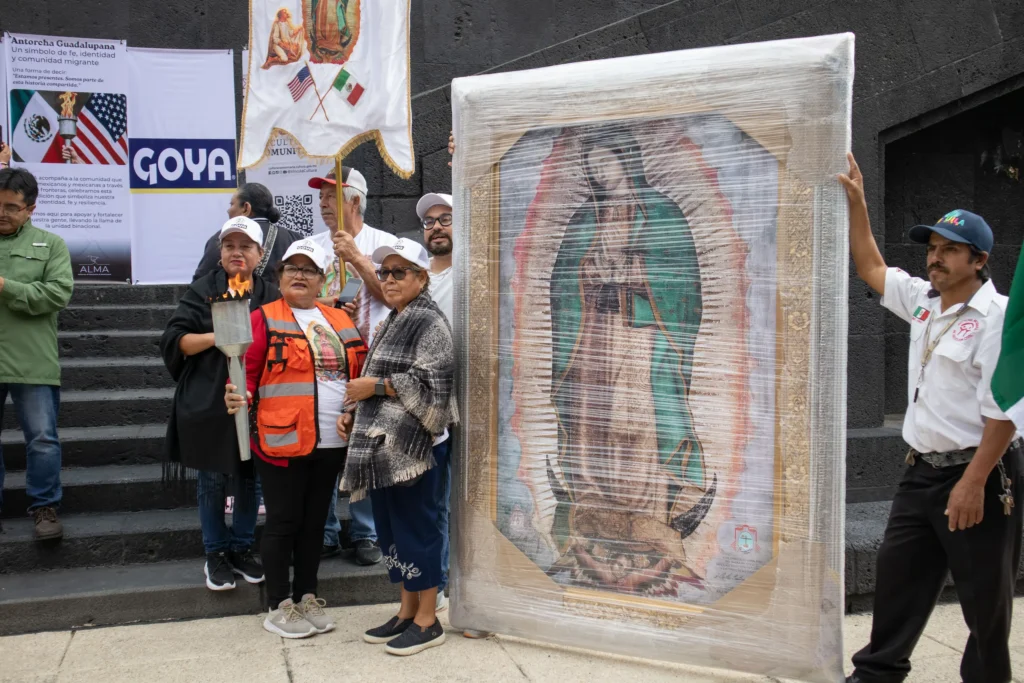
At eight o’clock sharp, the portrait of the Virgin of Guadalupe and Saint Juan Diego moved slowly forward, flanked by runners, devotees, and Mexican and American flags waving in the sun. Mariachis accompanied the procession, their trumpets and violins seeming to announce to the entire city that the “Mother of Mexicans” was once again making her way north, all the way to St. Patrick’s Church in New York.
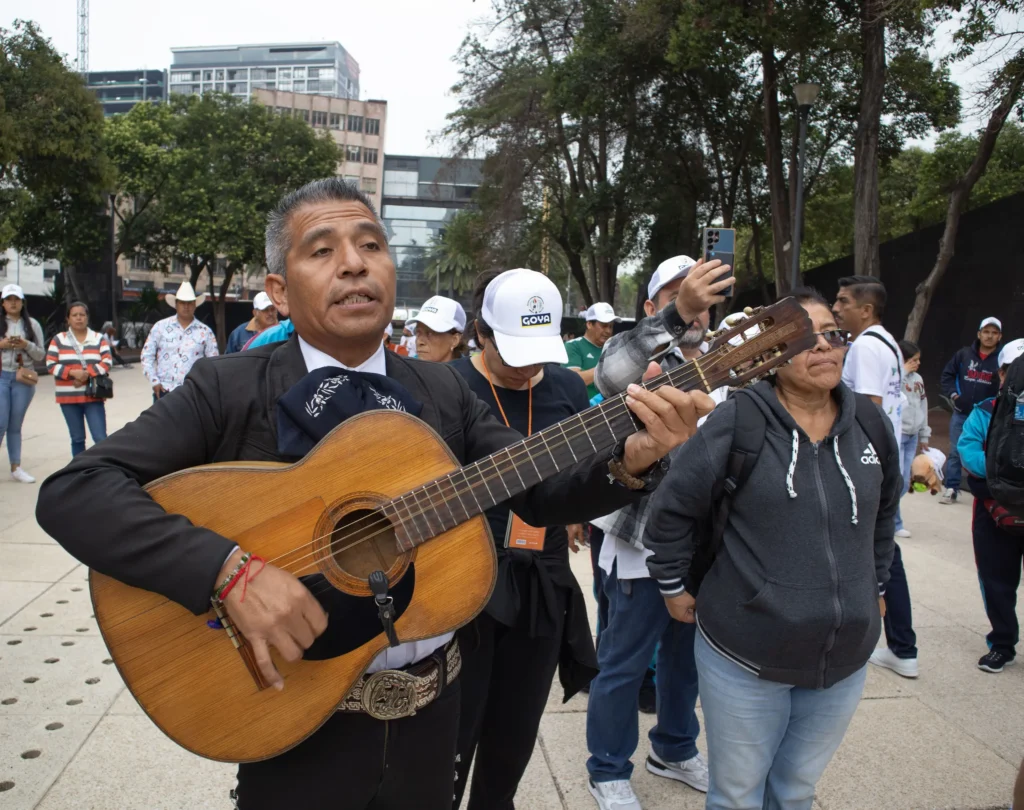
The atmosphere was festive, but also deeply emotional. The torch, lit at the foot of Tepeyac, carried a message of faith, unity, and resilience in the face of difficult times. For many, it’s not just about running, but about sending a blessing and a hug from afar to their relatives living across the border.
Among those present, various organizations—ALMA, GOYA, Tepeyac Association, Pulso Nueva York—took the microphone. The message was unanimous: the Guadalupana Torch is a symbol of faith, but also a call to governments to protect the rights of migrants and a peaceful way to reject the immigration policies of the President Donald Trump.
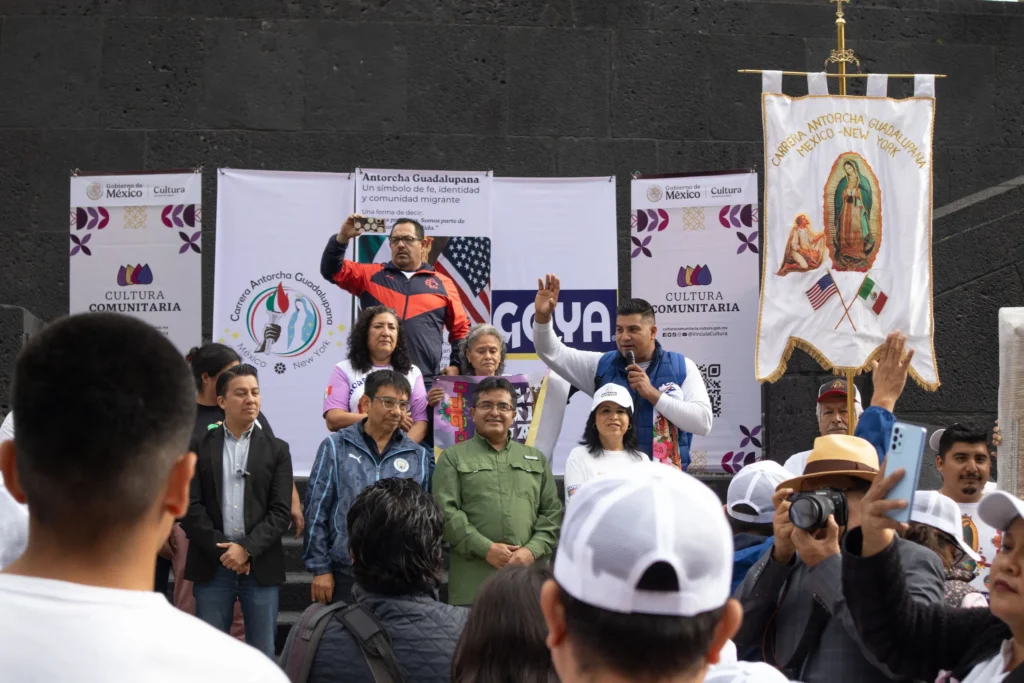
Lucía Margarita Romero, a volunteer who has been running the Torch for 15 years, shared her story through tears and strength. She is participating in memory of her migrant son, who died in an accident.
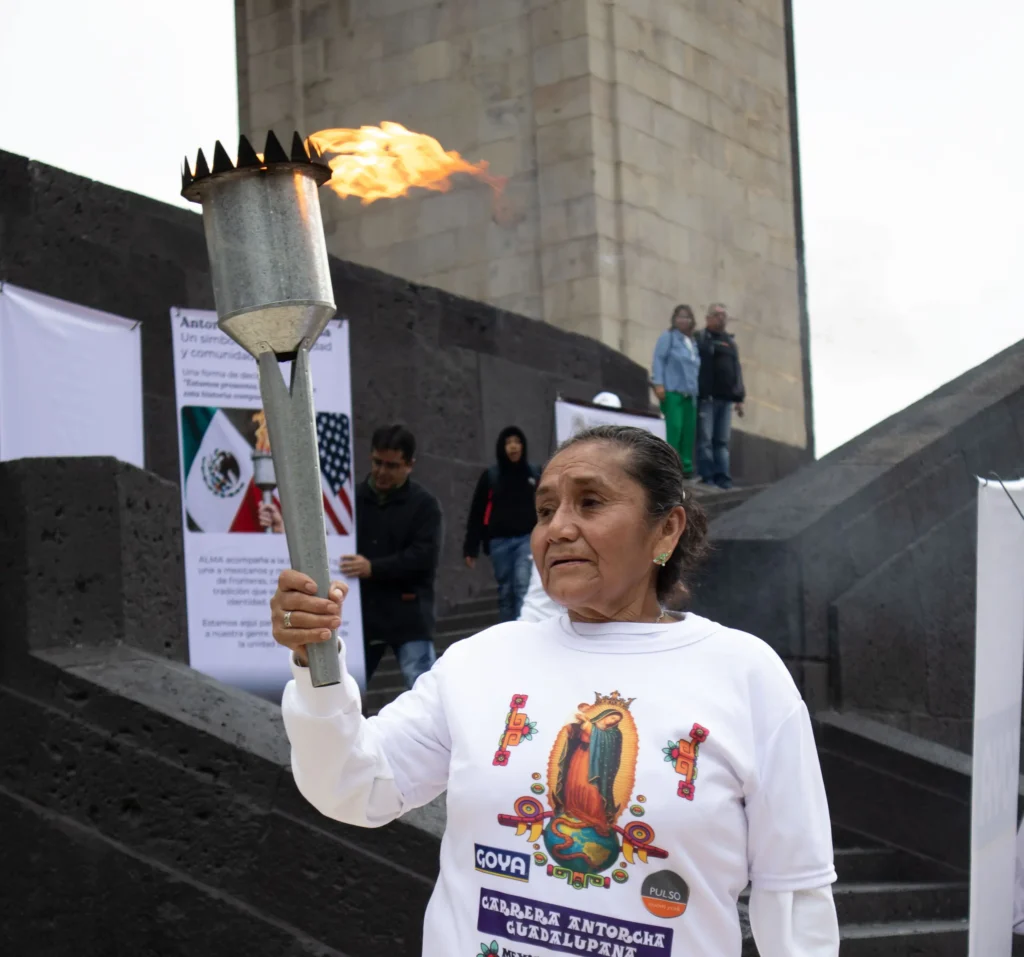
“Here, the parents come to the Basilica, to the closing Mass, and they tell me: ‘Take this hug to my son in Atlanta.’ When I arrive, he runs up and says, ‘jefecita!’ And I reply, ‘Look, I’m bringing you a hug from your dad.’ Then he starts to cry.”
For her, each torch relay is an invisible bridge between parents and children separated by the border. “Thousands of hands hold it, here in Mexico and then in the United States. Even though it’s made of steel, it changes color, because the hands of those who hope and those who dream are imprinted there,” she said.
After the first hour, the procession also became a social gathering. Tamales and tacos de canasta were passed around among runners and attendees who were replenishing their strength before continuing the journey. Between snacks and laughter, conversations returned again and again to the same point: the hope for a more just future for migrants and the certainty that faith in the Virgin is a flame that never goes out.
The farewell was sealed with a group photo, an indelible testament to the beginning of this journey that will once again unite Mexico and the United States. After just over two hours, the runners were ready to resume their journey, carrying with them not only the torch, but also the prayers, tears, and hugs that each family entrusted to them.
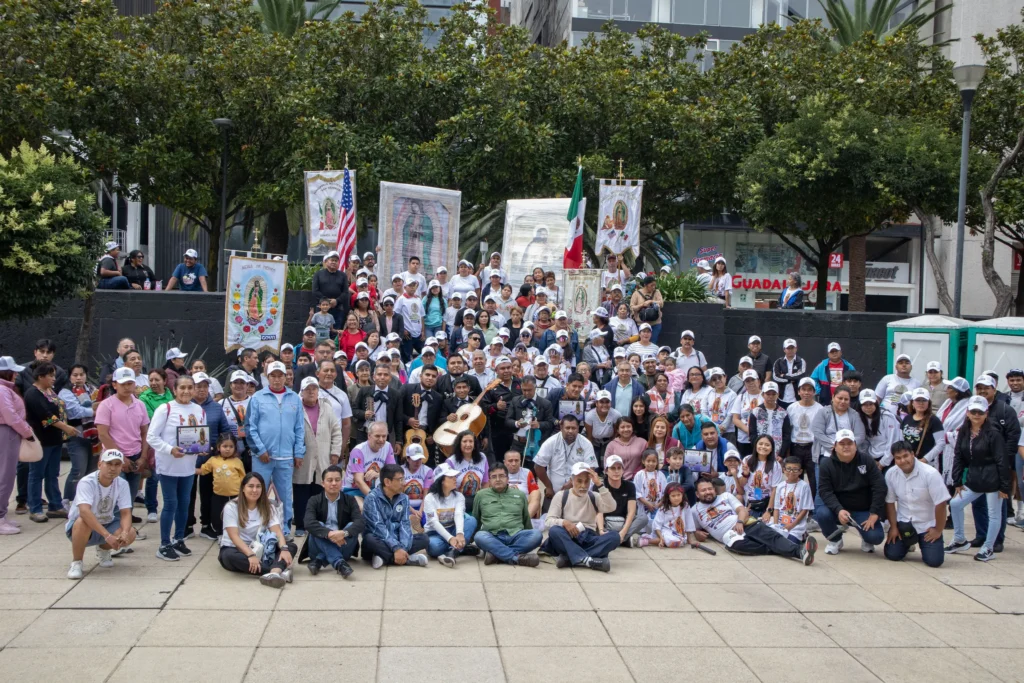
The faith that resists
The Guadalupe Torch Run reminded us once again that faith travels, that miles don’t stop a people’s love for its migrants, and that each relay is, at its core, a hug sent from the Basilica of Tepeyac to the streets of New York.
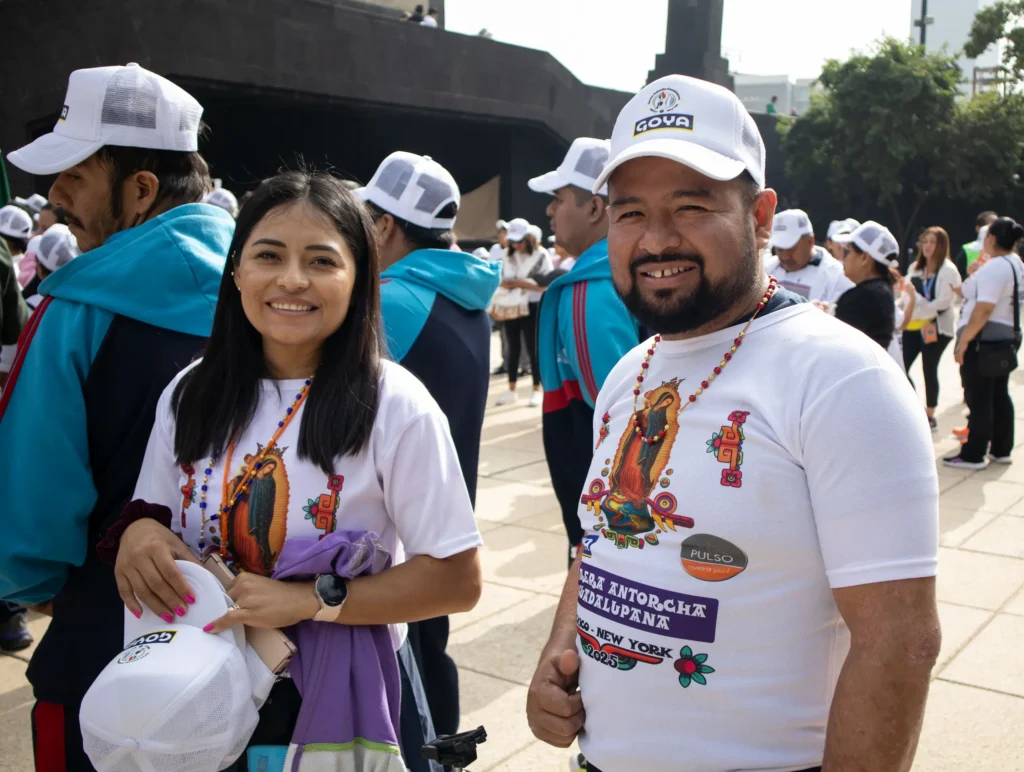
It is also a living metaphor: just as a fire is kept burning by thousands of hands that protect it, the hope of migrants is sustained by the strength of an entire community that, through prayers, songs, and footsteps, insists that faith can also be resistance and unity.
Related: The Great Desert Race Returns: Sonora Challenges the World Amid Dunes and Culture